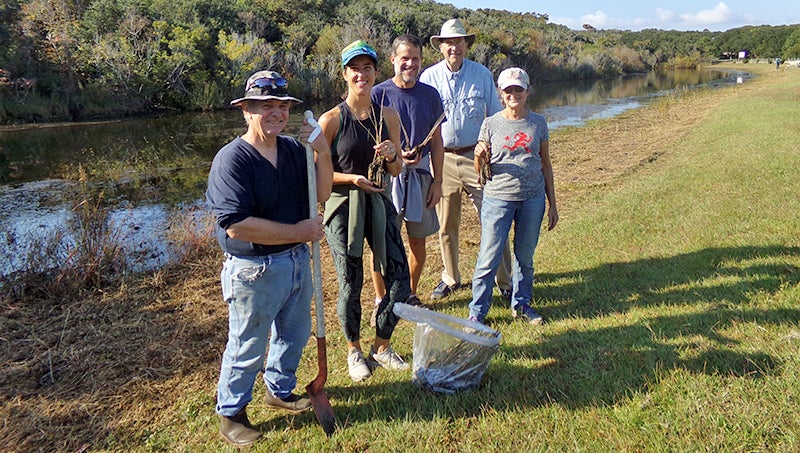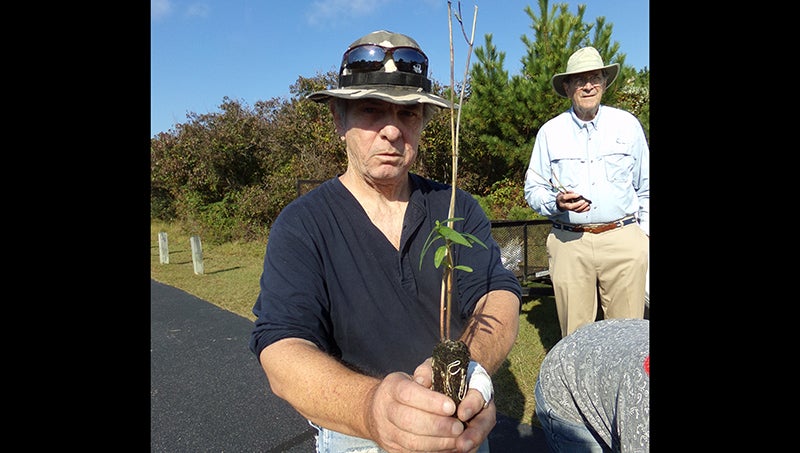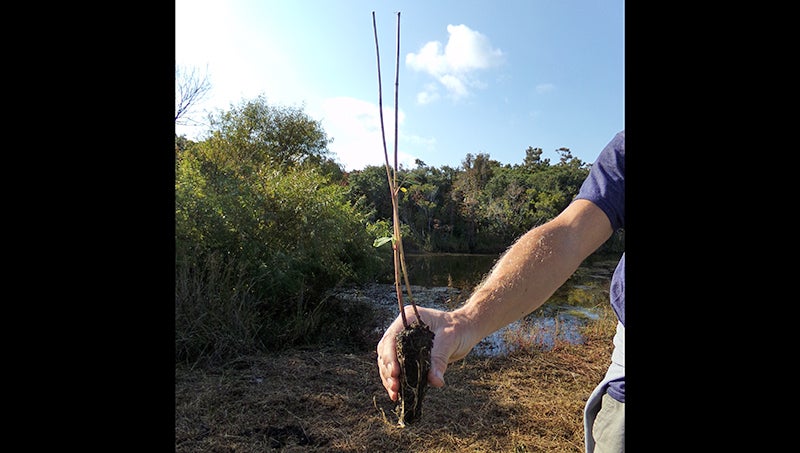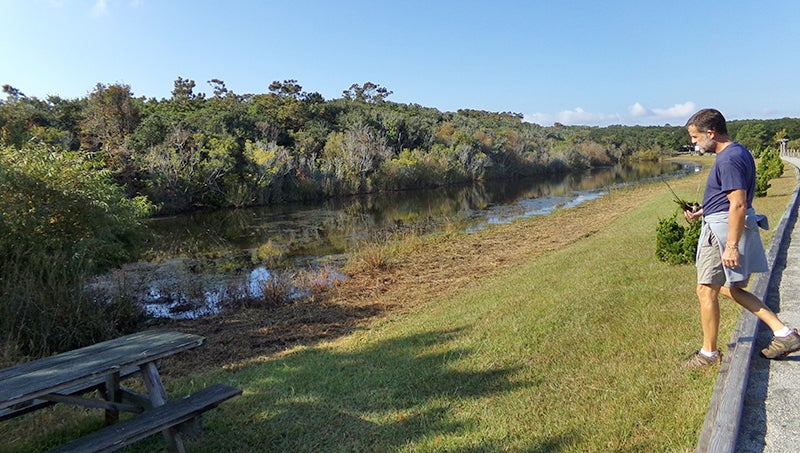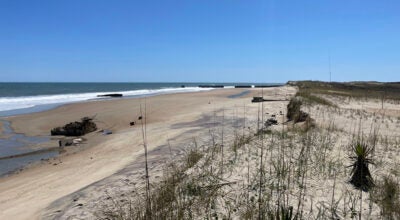For the butterflies: Volunteers plant 3,000 milkweed plants for monarch population
Published 11:42 am Saturday, October 30, 2021
|
Getting your Trinity Audio player ready...
|
Three thousand milkweed plants were planted along Southern Shores’ marshes and ponds Saturday, October 23 to help increase the monarch butterfly population. Over 50 volunteers showed up with shovels to participate in the planting, beginning at the Hillcrest Beach access wetland area and moving to the North Marina pavilion and Circle Drive.
The event was a result of a pledge the Town of Southern Shores took to be a part of a national effort to aid migrating monarch butterflies as they journey from the United States and Canada down to central Mexico each winter and return in the spring and summer. The milkweed plant is the “complete package” according to Southern Shores Civic Association (SSCA) volunteer and events coordinator Emily Gould and “caters to the entire lifecycle of the butterfly.” The plant houses the larva, which is a critical part of the beginning stage of support, and offers a food source for the monarch butterfly.
The decreased population is caused by urban development and primarily by the use of herbicides in croplands, pastures and roadsides. According to MonarchWatch.org, monarch waystations can be created by planting milkweed or other nectar sources in home gardens, at schools, businesses, parks, zoos, nature centers, along roadsides and on other unused plots of land: “No effort is too small to have a positive impact.”
To prepare for the planting, Southern Shores Town Council member Jim Conners cleared the areas so the milkweed would have adequate sun exposure. The hope of volunteers is that the perennial milkweed plants, purchased from Wetland Plants, Inc. in Edenton, will thrive over the winter and will flourish in the spring, growing to be approximately 4 feet, and we will be a continued source of sustenance for the monarch butterfly.
“We are focusing on what we can do in Southern Shores,” said Conners. “We’ve had a tremendous outpouring of volunteers.”
All that’s left to do now is wait. “We’ll see what happens in the spring,” Gould said.


